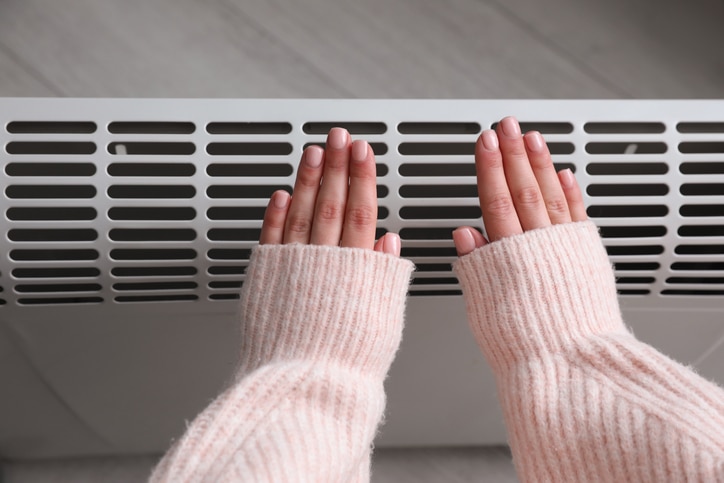Many people with dry, itchy skin suffer most when the weather turns cold and the air inside gets dry.
For most of us, using a humidifier and moisturizing with lotion more often during the winter can help ease the pain, replenishing the top layer of the epidermis and preventing chronic eczema.
But for patients with psoriasis, this may not be enough because this inflammatory skin condition is more than just dry skin.
“Most people don’t realize that psoriasis is one of the most common autoimmune disorders,” says Angie Koriakos, DO, dermatologist on the medical staff at Methodist Richardson Medical Center.
Psoriasis patients have hyperactive immune systems that mistake skin cells for foreign invaders and attack them, Dr. Koriakos says.
“That, in turn, causes your skin cells to multiply too rapidly,” she says, “which leads to the telltale red, itchy patches of skin covered with silvery-white scales.”
While psoriasis has no cure, there are a few tried-and-true solutions that Dr. Koriakos advises patients to try:

Central heat and a wool sweater make cold weather bearable — but can make psoriasis miserable.
WHAT TRIGGERS IT
For most patients, psoriasis emerges in cycles, flaring up for weeks or months at a time and then going into remission.
Understanding what environmental factors may be triggering the worst flare-ups is critical to living with this chronic disorder.
Some of the most common triggers include:
- Dry air: Dr. Koriakos advises her patients to combat the dry conditions that winter brings by developing and committing to a moisturizing routine. “Warm, not hot, showers using a gentle, hydrating soap will help,” Dr. Koriakos says. “Gently pat your skin dry and apply a thick moisturizing cream within three minutes.”
- Stress: This is a well-documented trigger for autoimmune disorders. Dr. Koriakos believes stress from the holiday season contributes to winter flare-ups. Remembering this connection could be key to lessening symptom severity this winter.
- Infections and injury: Injuries to the skin, from bug bites to severe sunburns, can cause flare-ups. So, too, can infections like strep throat.
- Clothing: When selecting cold weather clothing, Dr. Koriakos advises her patients to opt for layering loose-fitting items made from natural fibers such as cotton and bamboo. “Materials like wool can irritate the skin,” she says, “and synthetic fabrics often aren’t as breathable, which traps moisture and causes irritation.”
- Alcohol and smoking: Drinking excessively can lead to skin inflammation. And so can smoking, even exposure to second-hand smoke or a campfire. Wildfires that burned across the Western U.S. led to spikes in psoriasis cases.

Smoking and drinking alcohol can aggravate psoriasis, inflaming already itchy skin.
REMEDIES FOR DRY SKIN
Older adults tend to suffer more with dry skin because sun exposure causes the epidermis to get thinner and retain less moisture.
Here are some proven ways to keep your skin healthy, especially during the winter months:
- Limit showers to 10 minutes or less because any longer will strip off the skin’s oily layer
- Pat yourself dry after bathing (rubbing can also strip off that layer), and apply moisturizer while your skin is still moist
- Shave after you bathe. Dry skin and stubble are more likely to be irritated by a razor
- Wear gloves when you go outside and when immersing your hands in water (like dish washing)
- Moisturize throughout the day, and don’t forget your lips need moisture, too
CONSULT A DOCTOR
The best thing someone with psoriasis can do is find a qualified dermatologist to help them navigate their condition, Dr. Koriakos says.
“Psoriasis may be common, but it’s not simple,” she says. “It can appear in any location on the body, and everyone experiences their own unique expression of the disease.”
That’s why she says it’s so important to work with a specialist to tailor a treatment that works for you, this winter and beyond.
“That is the biggest key to managing symptoms year-round,” she says.






